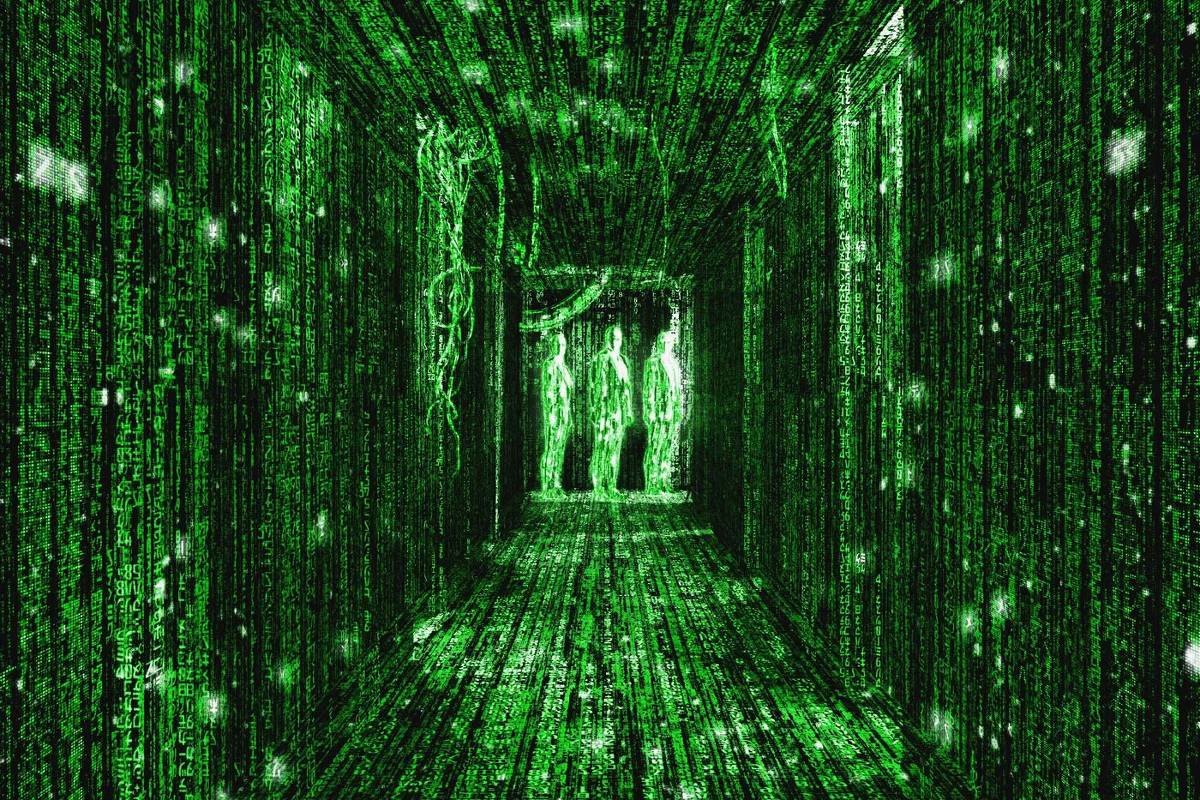A group of physicists led by former NASA scientist Thomas Campbell is investigating a theory that could revolutionize our understanding of the universe: the simulation hypothesis, which proposes that reality could be a complex simulation.
The team of scientists, which also includes Farbod Khoshnood of California State Polytechnic University, Pomona (CalPoly), is currently at the forefront of this controversial theory. The hypothesis is that the universe could operate like a video game, generating a “custom” reality for conscious observers.
This hypothesis, long theorized by philosophers and popularized by the 1999 blockbuster movie “The Matrix,” is based on an unconventional interpretation of quantum mechanics, specifically the famous double-slit experiment.
In this experiment, when light is fired through two slits, an interference pattern is observed, indicating that the light acts as a wave. However, when the light is observed using detectors, this pattern disappears, indicating that the observation itself influences the behavior of the particles. In other words, subatomic particles seem to behave differently when observed, which has puzzled physicists.
Campbell suggests that this phenomenon may be one in which reality is only “presented” at the moment of observation, in the same way that a computer game generates only the parts of the virtual world that the player sees while playing.
To test this hypothesis, the team developed a series of experiments described in their book. condition “On Testing Simulation Theory,” published in 2017 in the International Journal of Quantum Foundations, is a variation of the double-slit experiment.
“Two strategies can be followed to test the simulation theory,” the team explains. conditionalso published on the arXiv preprint server: (1) Test rendering time; (2) Exploiting conflicting requirements to maintain logical consistency and avoid detection to force the VR rendering engine to create interruptions in its rendering or produce a measurable signature event in our reality indicating that our reality should be simulated.
In one of the simplest experiments, they propose storing data about particle paths and the patterns they form on separate USB devices and then randomly destroying some of them before anyone sees the results.
If interference patterns only appear when the corresponding trajectory data are destroyed, they argue, this could indicate that reality is generated at the time of observation.
The team proposed other, more complex versions of the experiment, which are available in their paper.
Consciousness, an essential element of reality
Campbell’s simulation theory differs from the concept of “ancestral simulation” proposed by philosopher Nick Bostrom of the University of Oxford in the United Kingdom, who formulated the simulation hypothesis, according to a recent statement. “Our hypothesis differs from Bostrom’s in that it considers consciousness to be a fundamental component of reality, rather than a result of simulation,” Campbell says.
“If all five experiments succeed as expected, they will challenge conventional understanding of reality and reveal profound connections between consciousness and the universe,” added the NASA and Department of Defense applied physicist.
To fund these experiments, Campbell created a nonprofit organization, the Center for Unifying Science and Consciousness (CUSAC). According to a press release, he also raised money through crowdfunding site Kickstarter to conduct the research.
controversial theory
It is important to note that this theory is highly speculative and controversial. Many physicists believe that there are more plausible explanations for quantum phenomena that do not require the assumption that human reality is merely a simulation.
In this sense, these experiments are unlikely to provide conclusive evidence for the hypothesis. However, there are scientists who persist in their research in this area, such as Melvin Vopson of the University of Portsmouth.
Vopson explored the possibility that a new law of physics could support the theory of a simulation universe, a concept that has caught the attention of figures like Elon Musk. The field, part of information physics, suggests that reality could be made up of bits of information. In previous research, Vopson suggested that information itself has mass and that elementary particles contain information about their identity, similar to human DNA.
Although the theories may be too radical for many, the scientific world still views them with a mixture of skepticism and curiosity. Regardless of the outcome, what seems clear is that Campbell’s research has captured the imagination not only of scientists but also of the general public. It’s no surprise that the idea that reality could be a simulation, a recurring theme in science fiction, is finally being explored in physics labs.

“Wannabe internet buff. Future teen idol. Hardcore zombie guru. Gamer. Avid creator. Entrepreneur. Bacon ninja.”

